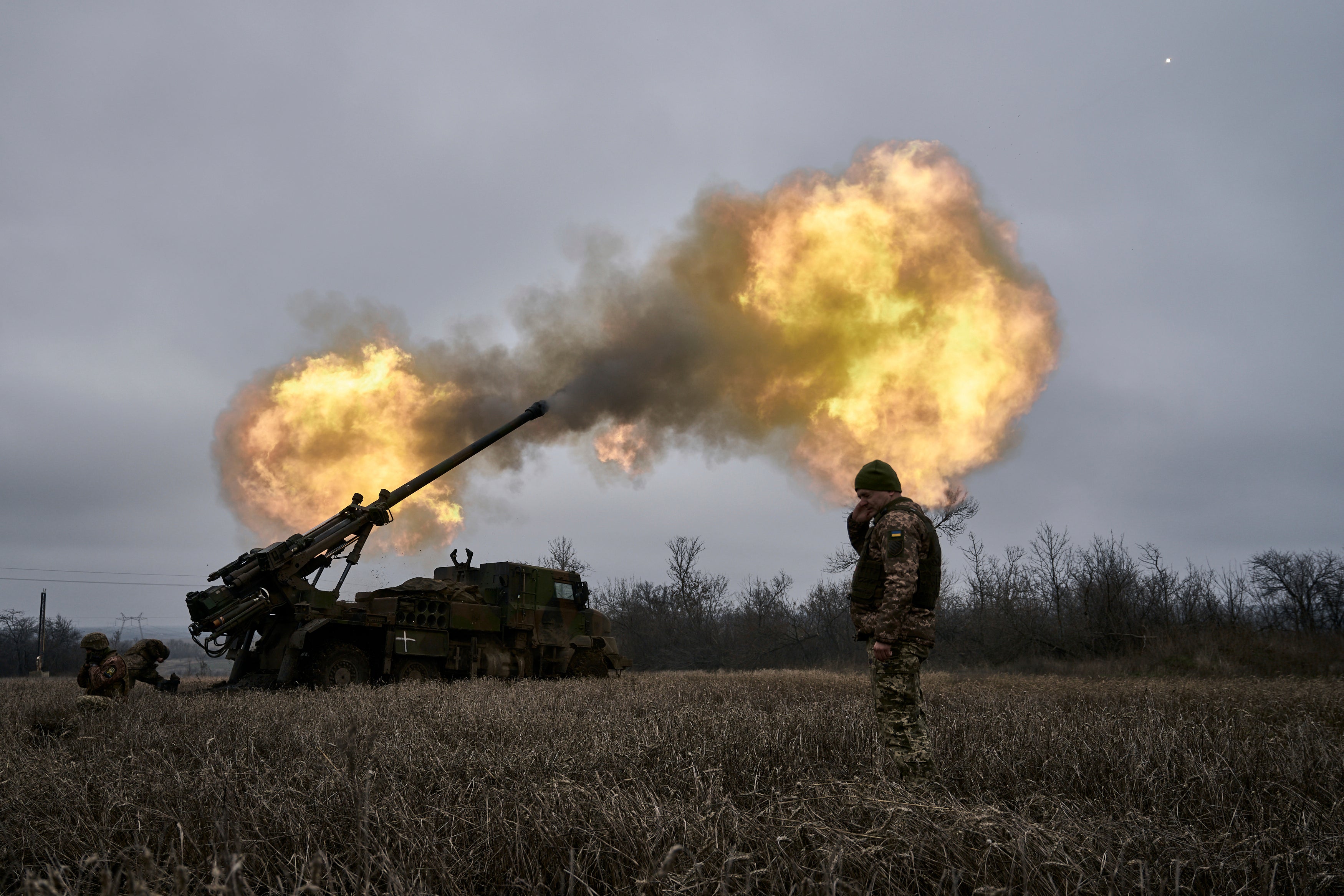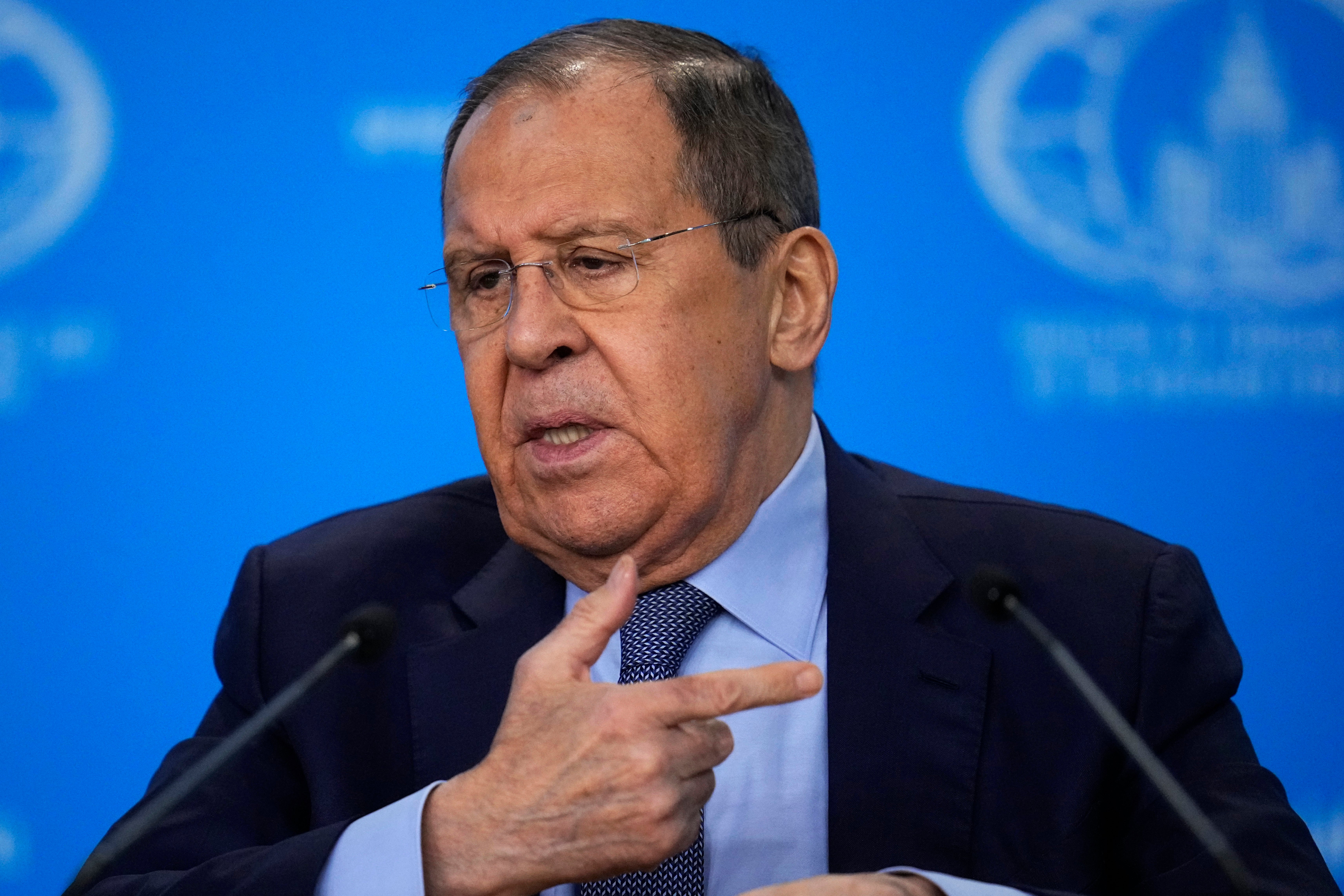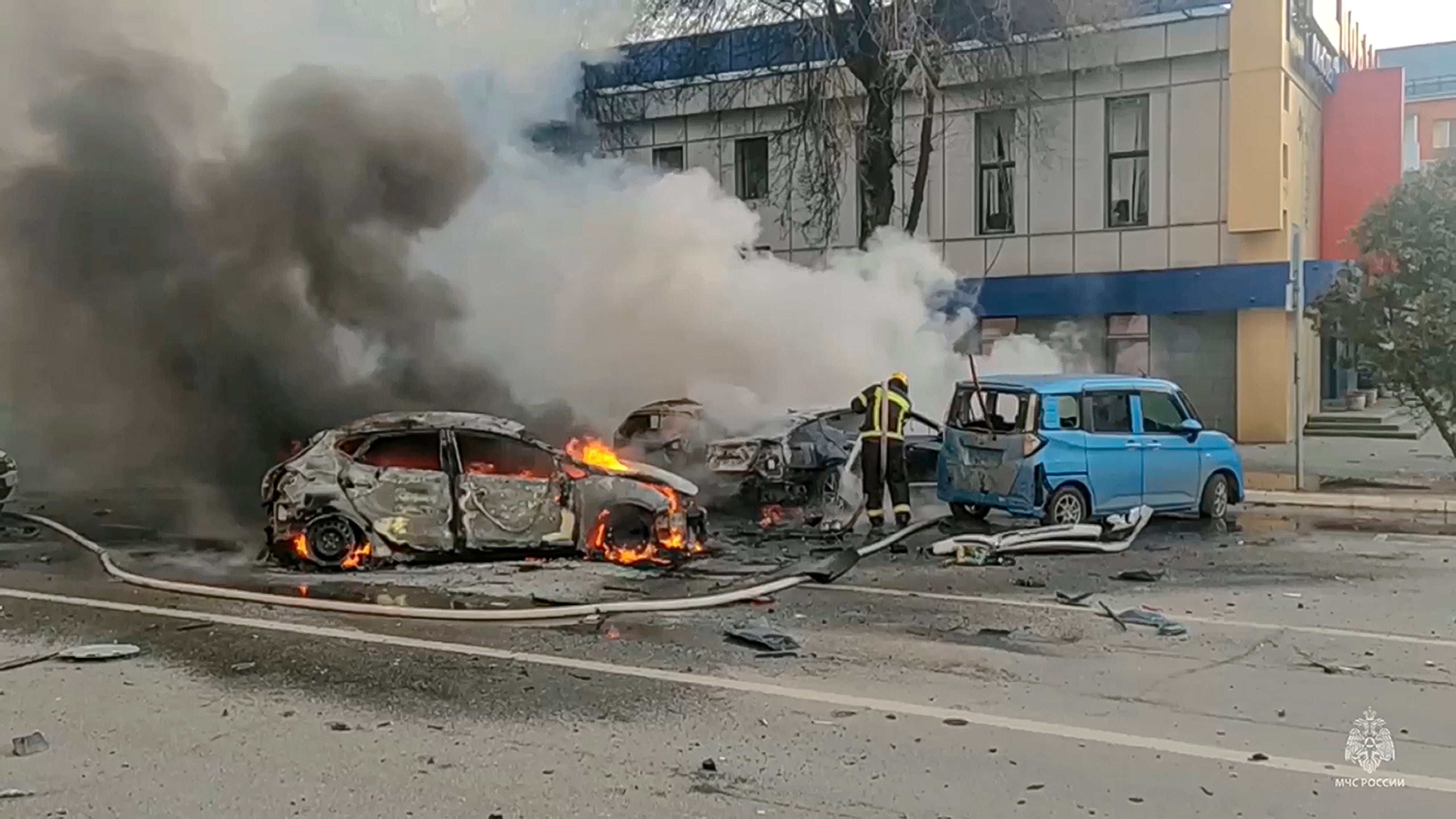Ukraine targets Putin’s hometown in ‘new phase’ of drone strikes against Russia
The attack on an oil facility is a rare strike on St Petersburg, where Russia’s leader was born

Ukraine has targeted an oil facility in the Russian city of St Petersburg, more than 500 miles from the border, in a drone attack.
A Ukrainian military source said the assaults on Vladimir Putin’s hometown were part of a “new phase” of strikes, with Ukrainian president Volodymyr Zelensky having previously pledged to hit more targets inside Russia this year, with the goal of disrupting life and increasing the pressure on Mr Putin.
Kremlin state media claimed three drones were fired toward St Petersburg in the early hours of Thursday, with the Russian ministry of defence claiming that all had been intercepted. The Ukrainian military source, however, told Reuters: “There are confirmed hits. This is a new stage of work in this region.”
One Russian outlet, Baza, citing its own sources, suggested that one drone had exploded between two fuel tankers in the St Petersburg oil facility. They added that a resultant fire was quickly extinguished.

A Ukrainian intelligence source also claimed the drone had flown over Valdai Palace south of St Petersburg, which is one of Putin’s residences outside of Moscow.
St Petersburg governor Alexander Beglov later acknowledged the attack but said no one was injured.
Russian authorities also reported a missile attack on the city of Belgorod, close to the border. Local governor Vyacheslav Gladkov said air defences had downed all 10 missiles but that one person had been injured.
The attacks forced the regional emergencies ministry to cancel the city’s traditional Orthodox Epiphany festivities, according to state news agency Tass, which were set to take place on Friday. The annual celebrations are widespread in Russia.
Belgorod, roughly 60 miles north of Kharkiv, Ukraine’s second-largest city, has been one of the worst-hit areas in Russia. On 30 December, shelling in the centre of Belgorod killed 21 people and wounded 110, according to regional officials.
In spite of the recent spate of attacks, and the anger felt by many Russians who have been forced to evacuate areas such as Belgorod, Russian foreign minister Sergei Lavrov tried to claim the war in Ukraine was having a “very positive impact” during a nearly three-hour annual press conference.
“It has united our society in an unprecedented way,” he said, despite a widespread crackdown on dissent that has left anyone opposing the war risking a hefty prison sentence.
As he spoke, Vnukovo airport in Moscow briefly suspended all flights in and out, according to Russian media, over fears of another Ukrainian drone attack.

Meanwhile, a Moscow state prosecutor has called for ultranationalist Igor Girkin, a figure who is anti-Putin but avowedly pro-war, to be jailed for nearly five years on charges of extremism.
Mr Girkin was arrested in July last year for peppering Mr Putin with personal insults and urging him to pass power “to someone truly capable and responsible” for carrying out an effective war in Ukraine. He has been in pretrial detention ever since.
It comes as the Hungarian administration, Mr Putin’s closest ally in Europe, cast doubt on hopes that the European Union could persuade it to cease blocking further aid to Ukraine to help fight off Moscow’s invasion.
Addressing a domestic briefing, the chief of staff of Viktor Orban, the Hungarian prime minister, said “our positions are far from” the EU over how to broker a deal.
“We are negotiating with the [European] Commission but our positions are far from each other, so an agreement is not certain,” chief of staff Gergely Gulyas said, before adding that Hungary did not rule out supporting Ukraine bilaterally.
Ursula von der Leyen, who heads the EU’s executive commission, said on Wednesday she was confident of finding a solution between the bloc’s 27 members.
Join our commenting forum
Join thought-provoking conversations, follow other Independent readers and see their replies
Comments
Bookmark popover
Removed from bookmarks